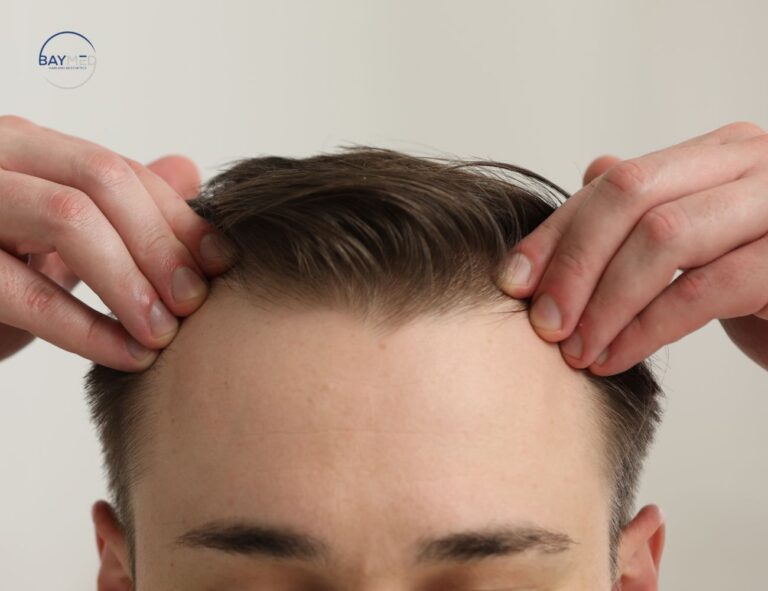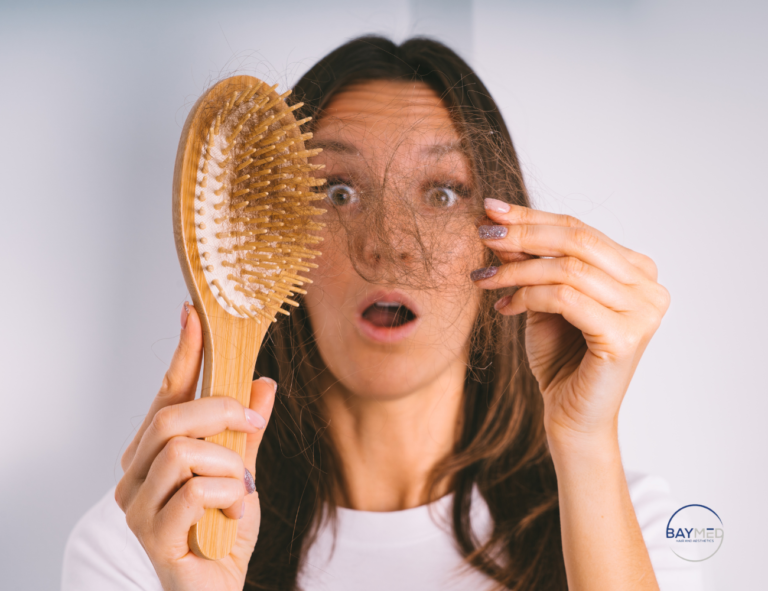Hair loss – known medically as alopecia – is a widespread problem for many Americans. For people from the Latinx/Latine or Hispanic communities, the social stigma related to hair loss can be greater. As Know Your Heritage explains, hair (and especially long hair for men and women) has long been an important part of many Latine and Hispanic cultures… making hair loss especially stressful.
What Ethnicity Is More Prone To Hair Loss?
Hair loss can happen to anyone of any ethnic background. Typically affecting those with a genetic predisposition, androgenetic alopecia is the most common form of hair loss. And, in the modern day, has been found in a wide range of ethnic backgrounds… albeit at differing amounts.
Additionally, alopecia triggered by trauma or disease can also affect anyone regardless of ethnic background because this form of hair loss – known as telogen effluvium – is simply hair staying in the phase of the hair growth cycle longer than usual. Telogen effluvium is a temporary form of hair loss caused by severe stress and 23% of hair loss patients report that they experienced an emotional event or crisis prior to the onset of hair loss. Various diseases that cause hair loss can affect anyone of any ethnic background.
Research into ethnicity as a factor in the appearance, diagnosis, and treatment of alopecia has been lacking. Hair texture, curliness, and thickness can affect which hair restoration treatment is ideal for certain types of hair loss… so there can be distinct differences and special concerns depending upon one’s background.
How Does Ethnicity Affect Your Hair & Hair Loss?
One study on alopecia areata – a disease in which the autoimmune system attacks hair follicles – used Caucasian men and women as a baseline. They then compared people of other ethnicities to get a sense of how common this form of hair loss is by ethnicity. The study found that people of Native American, Black, and Pacific Islander backgrounds tend to be more inclined to develop alopecia areata than Caucasian people, while those of Asian descent are even less likely to develop this type of hair loss. Those of Hispanic or Latinx descent had the lowest rates of alopecia areata, coming in at slightly less than in Asian people.
However, a different study on comorbidities present in cases of alopecia areata in the Hispanic/Latinx community seemed to indicate that this form of hair loss is more prevalent than the other study did. Clearly, more research needs to be done on the subject of hair loss in various ethnic communities. Especially since general hair loss studies have shown that it affects nearly all aspects of a patient’s life: personally, socially, financially, and physically… which can eventually perpetuate poor self-esteem, social disconnection, negative coping strategies, and failure to achieve full-life potential.
One study done in Mexico found that 77.6% of patients experienced a change in their quality of life after onset of the disease, 65.9% reported feelings of depression or anxiety and, unfortunately, 12.8% had suicidal thoughts post diagnosis. That is how great the burden of this “cosmetic” disease is… and the more severe the disease is, the greater the burden.
There are varying degrees of alopecia that are typically measured with the SALT scale (Severity Alopecia Tool) in research settings, but there is no typical or consistent scale in clinical practice. Implementing this severity scale in clinical settings could provide substantial benefit for treatment decisions and disease monitoring for the future.
Is Hispanic Hair Thicker?
“Thickness” is a term commonly misunderstood when applied to hair. In some cases, the thickness may refer to the diameter of the individual hair strands. However, in terms of hair loss and treatment for it, “thickness” is commonly used to refer to the density of hair strands. Often, those with curly hair will have a somewhat lower hair density than those with straight hair.
As such, studies have shown that those of Asian descent will have the greatest hair density. Hispanic hair tends to be next in terms of hair density, followed by those of a European background or Caucasian ethnicity – though the thickness of their hair strands may vary. People of Asian descent tend to have thicker hair strands than Caucasians.
BayMed Hair and Aesthetics Can Treat Hispanic Hair Loss Issues
Here at BayMed Hair and Aesthetics, we understand that whether you are Latinx or not, your hair is not merely a cosmetic part of your body. Our hair is part of our identity. Call us today to talk with our doctors about stopping hair loss and getting the treatment you need.





